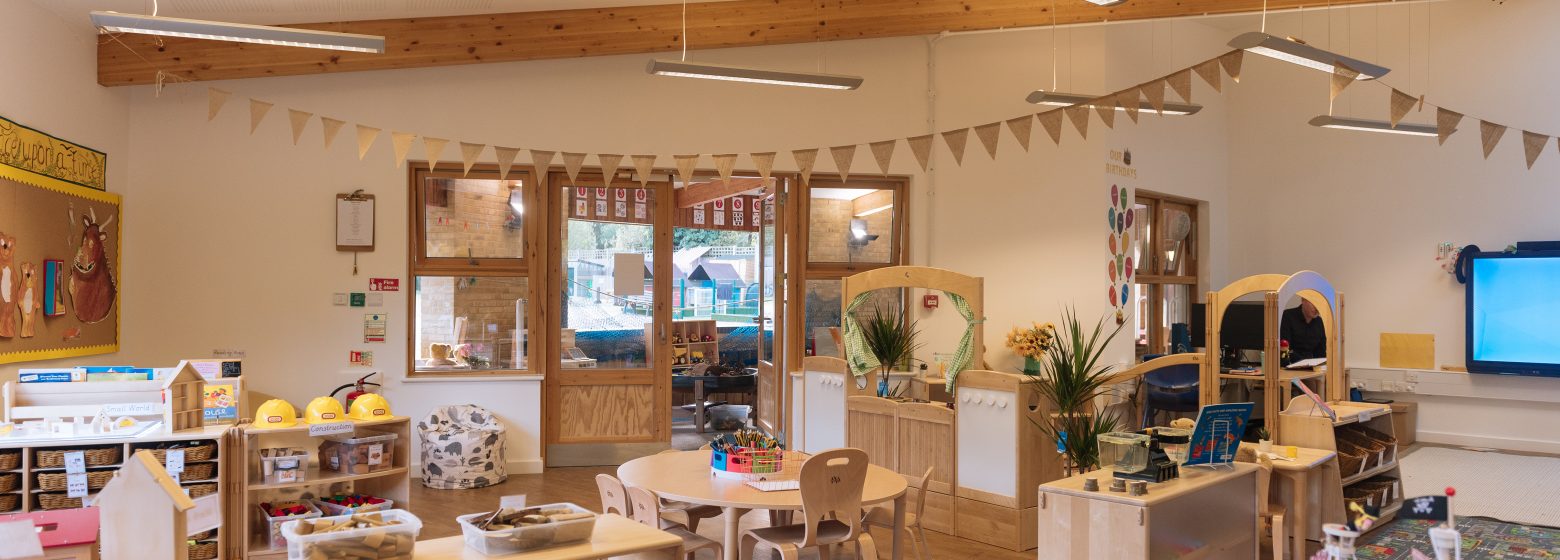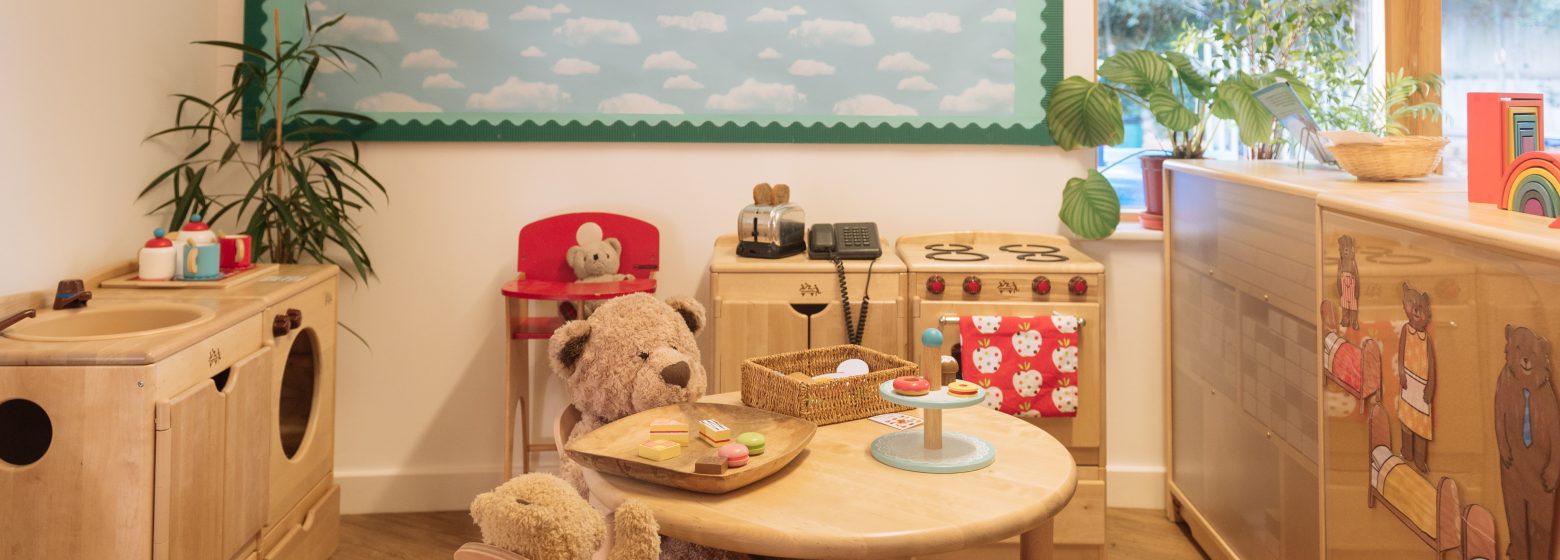In the first week of September, 77 boys and girls will walk into brand new Nursery classrooms. These classrooms represent many years of researching (and trialling) the best practices and products to provide an outstanding start to a child’s education.
The classroom environment has always played an important role in providing a good foundation in the Early Years (Bryce-Clegg, 2015; O’Sullivan, 2015). The classroom is integral in facilitating natural curiosity and promoting learning through play (Dooley, 2021). The space also needs to be inviting and safe so that children are at ease and comfortable learning. Perhaps unsurprisingly, research has traditionally focused on how Early Years settings use space, especially the interplay between the indoor and outdoor space.
This was very much the case when the Dulwich Prep Early Years site was built in 2010. Each classroom layout was meticulously planned by the architects to ensure a seamless flow into the outdoor area, and I am sure this is one of the reasons why the children enjoy coming to school so much (and the staff enjoy teaching!).
This use of space remains important today, but there has been a new(ish) shift in Early Years/Key Stage One practice questioning the interior design of the classroom. For example, the choice of materials for the furniture, what colour the walls should be painted, and even the backing paper for the boards.
When we think of Early Years and Primary Classrooms, we often think of rich and vibrant primary colours (Sylvester, 2022). We very much fell into this category too, with brightly coloured classrooms and furnishings. Slowly, however, with much credit going to our current Head of Reception, Mr Charlie O’Sullivan, we have begun carrying out our own action research into the effects of becoming more neutral in our choice of furniture, wall colour and materials.
Our decision to refurbish and redesign our classrooms was not taken lightly, nor was it taken because it is currently ‘on-trend’. For us at Dulwich Prep London, the aim was always to create a more ‘calm, quiet and homely’ feel to the classroom (O’Sullivan, 2015) and provide children with the very best materials for them to explore within their learning. We were interested – and saw first-hand – how, “[…] a vast array of colours can overstimulate a child’s brain” (Dooley, 2021: 137), and we wanted to be purposeful in everything we do.
To that end, over the summer of 2022, we have retiled the floor, moving away from the bright green/blue laminate to a more natural wood tone. We have repainted the walls to an off-white and finally partnered up with the company ‘Community Playthings’ for our furniture
There were many reasons for choosing Community Playthings. Whilst several companies use neutral tones in their furniture, we felt that Community Playthings products were of outstanding craftsmanship. Sustainability has always been a key consideration for us, too and therefore, having furniture which will stand the test of time (and the rigours of many tiny hands) is something we value.
And so, as I write this blog post, the furniture is going into the classrooms, and we are all incredibly excited to see the faces of all the Nursery boys and girls (and parents!) when they walk through the doors in September.
Dr Christopher Halls, Head of Early Years
Bibliography
- Bryce-Clegg, A. (2015). Best Practice in the Early Years. London: Bloomsbury.
- Caswell, J. and Peach, K. (2022). Inspection: When Did Early Years Turn Beige?
- Dooley, V. (2021). Are you ready for your inspection? CreateSpace Independent Publishing Platform.
- O’Sullivan, J. (2015). Successful Leadership in the Early Years. London: Bloomsbury.
- Sylvester, R. (2022). How to teach a Toddler, The Scandi Way. The Sunday Times Magazine, 05.03.22, pp.16-23.




